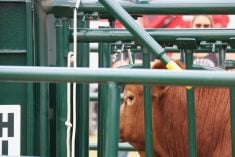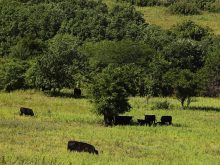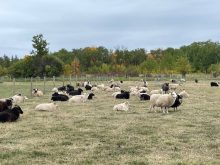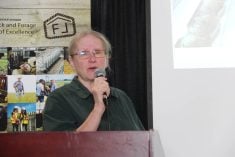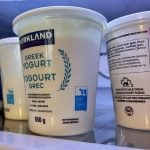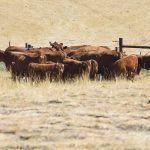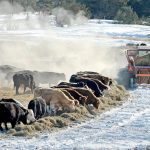It is with sadness I heard about Alberta Farm Animal Care (AFAC) closing its doors in Alberta after 30 years, which I would say is after 30 years of extreme good.
The great thing was that it was animal welfare-based through and through and had all the production animal groups on its board. They all benefited from the many things AFAC did. The question is, who will carry on the charge?
I considered AFAC a very proactive group when it came to dispersing information about animal welfare. Its newsletter contained many articles about advancements in animal welfare in all species groups. It was a very objective, informed group that had respect in the industry for the things it did.
Read Also
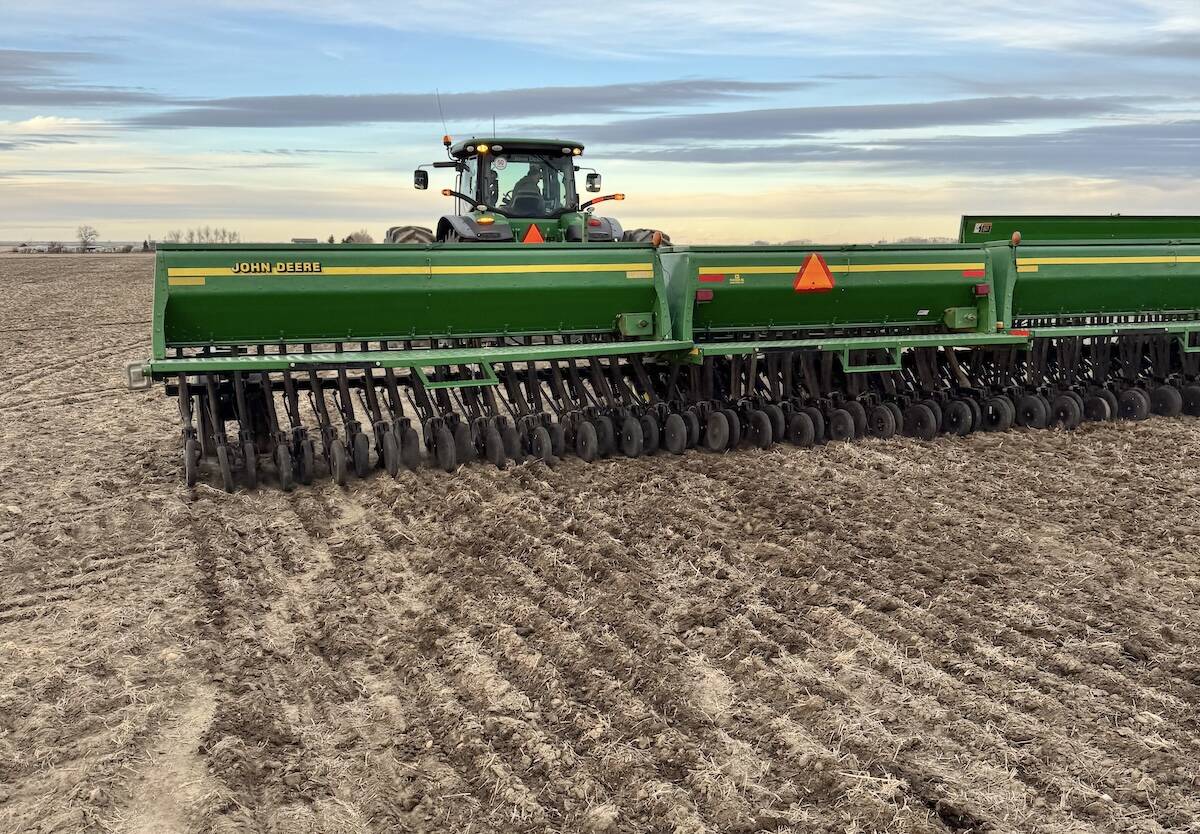
Southern Alberta farms explore ultra-early seeding
Southern Alberta farmers putting research into practice, pushing ahead traditional seeding times by months for spring wheat and durum
One of its big accomplishments was the emergency livestock trailers stationed at key locations across Alberta. Often they are kept at first responders’ stations, to be used in livestock trailer crashes or rollovers. They come with all the emergency gear including portable panels. This project started around 20 years ago with the first trailer around Red Deer and has grown from there. These are kept now and maintained typically by the county yards and the first responders’ groups, so that service to the public and the livestock industry in Alberta will continue. The trailers have been operating this way for several years.
AFAC had annual awards in the categories of innovation, communication industry and leadership. As I look over the list of these award recipients, there are many prominent Albertans on that list for their accomplishments.
If one goes into the AFAC website there are many documents on animal-welfare related topics such as castration, dehorning and branding that may be of interest to everyone. Hopefully, again, the various species groups will take over the archiving and distribution of these valuable management tools before the website is archived.
The other day-to-day valuable service AFAC provided was the Alert Line. Potential animal welfare issues could be phoned in and reported anonymously and calls would be followed up. Contact was made to confirm if there was an issue and education and help would be provided if needed. Advanced animal welfare issues, such as a starvation case, would immediately be advanced to the proper SPCA jurisdiction. This is still being maintained and my hope is that the SPCA will take this over.
The Alert Line has always been, in my eyes, a precursor and a sort of preventive route to correct animal welfare issues at their start, or to educate to prevent such issues in the future. It’s a win-win situation. I know of many cases over the years in which SPCA enforcement was totally prevented and the person/producer/livestock owner was better for it.

AFAC became the voice that looked after the animal welfare of all the farm species in Alberta. This would include the farmed bison, elk and deer sectors as well as more domestic species. AFAC would often post statistics on the number of calls received and it was not skewed toward any one species, based on population of that species in Alberta.
There was a yearly conference, which will now be gone, but perhaps the relevant topics will appear in other conferences such as veterinary, animal science and pure animal welfare conferences we see in other parts of the world. Animal welfare, as we know, is a big part of animal production for all the species, and we have made huge strides in matters such as housing, processing, treatments, use of NSAIDs and other painkillers, and livestock transportation.
The latest buzzword, enrichment, is one we see being used in the progressive zoos and in various changes that have been tried in confinement rearing of pigs, for instance. This aspect will continue to expand. One could maybe say a lot of the huge gains in animal welfare have been achieved by groups such as AFAC, but groups such as the BCRC (Beef Cattle Research Council) also have extension, new developments, teaching tools and animal welfare as a big part of their mandate.
AFAC, along with others, was also originally involved in setting up a directory of veterinarians in Alberta, listed by clinic and town, who work on diversified livestock such as bison, elk and deer. This directory can be found on the Bison Producers of Alberta website.
I wanted to leave you with AFAC’s Alert Line number. Many concerned citizens have helped livestock in Alberta by using this number: 1-800-506-2273. I have seen it posted in veterinary clinics, at auction markets and on fridges, as magnets have been made over the years. It is a great number to have at hand, to give to someone you know who is concerned about an animal welfare issue they have witnessed.
(Editor’s Note: The Alberta SPCA more recently announced it will maintain AFAC’s Alert Line “for the time being,” but also recommends updating contact lists to include its own toll-free line at 1-800-455-9003, when reporting an animal in distress outside Edmonton or Calgary jurisdiction.)
In closing, this is the end of an organization, but hopefully it will result in a rebirth for portions of what AFAC did, spearheaded by others in Alberta. I would say it did a tremendous amount of progressive good for animal welfare in Alberta, and I salute all those who gave their time to AFAC, whether as an employee or on its board.



